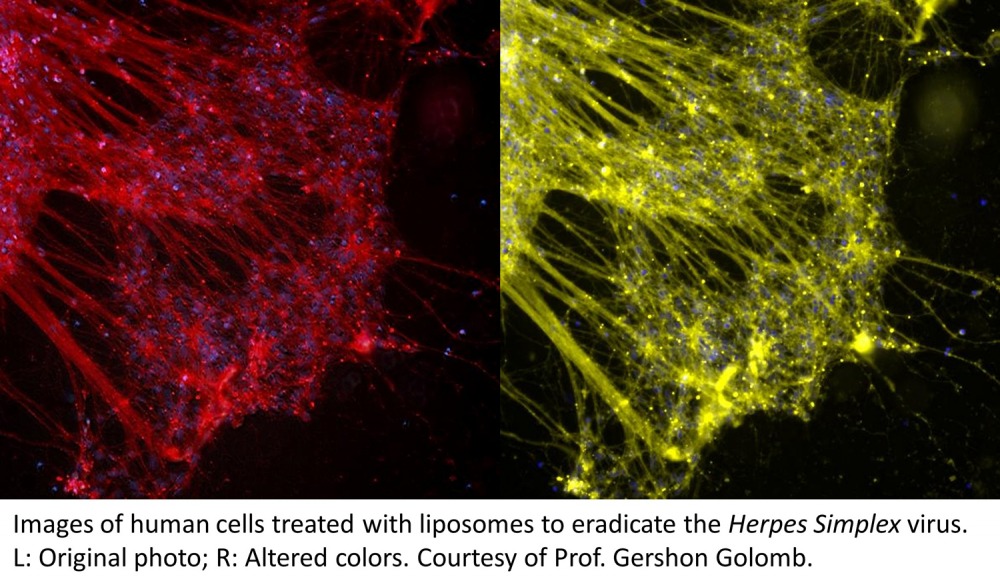
"Great breakthroughs can be neither planned nor predicted, and I’m working hard to be prepared for luck."
Professor Gershon Golomb is a researcher at the School of Pharmacy’s Institute for Drug Research, Faculty of Medicine. His expertise is developing drug delivery systems – especially for the treatment of inflammatory-associated diseases. As the Coronavirus spreads around the world, with no end to the pandemic in sight, two of Prof. Golomb’s projects are perfectly poised to help COVID-19 patients.
Project I: “Kill Corona”
Prof. Golomb’s first project is a clinical study using liposomal alendronate to treat COVID-19 patients. Alendronate is a drug commonly prescribed for treating osteoporosis. Prof. Golomb’s innovation was to wrap the alendronate inside a nanoparticle, a liposome (fat) or polymeric-based nano-particle, thus altering the drug’s path; rather than reaching the bone, it now directly targets the body’s innate immunity system – which causes inflammation. In 2002, Prof. Golomb received the Kaye Innovation Award for his discovery that restenosis (the narrowing of blood vessels) is an inflammatory response and for demonstrating how liposomal alendronate could be used to treat patients.
His drug has completed phases I, II, and IIb clinical trials for the treatment of restenosis, and has been proven safe and effective for human use – including with diabetics and cardiovascular patients. Along with his partners at the Hadassah Medical Center and Shaare Zedek Medical Center, Prof. Golomb is now hoping to study whether his anti-restenosis drug could help mildly ill COVID-19 patients. They have already received approval from Hadassah’s Helsinki Committee of to proceed with the trial and are awaiting Ministry of Health approval.
Prof. Golomb has 150-200 vials of the drug from his last trial, and the Israeli manufacturer is willing to ensure they have not expired. They hope to recruit 40+ mildly ill patients and begin testing whether the drug can prevent cytokine storms and intubation.
Project II: “Fraunhofer vs. Corona”
Prof. Golomb’s second project is through the Fraunhofer Project Center for Drug Discovery and Delivery at the Hebrew University. Fraunhofer is a German research institute, with approximately 80 research centers worldwide. Their partnership with the Hebrew University focuses on one of the University’s strengths – drug delivery systems.
This collaborative effort is based on employing small interfering RNA (siRNA) for treating the Herpes Simplex virus, by developing nanoparticle that target the virus. Current herpes treatments are limited to alleviating or shortening the cold sore, yet this innovative drug delivery system directly targets the virus – eliminating it completely.
To this end, Fraunhofer has drawn upon its extensive drug library, identifying drugs that might be repurposed to directly target the SARS-CoV-2 virus. Rather than inject patients with large doses and hope for a positive outcome, Prof. Golomb is working to develop a navigator that targets, or has an affinity, to lung cells. If successful, clinicians would be able to administer lower doses with high specificity – and target the Coronavirus directly, while avoiding side effects.


